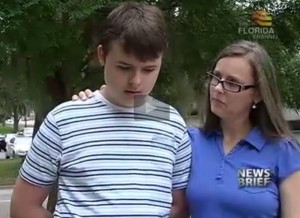
The Florida teachers union got a lot of ink this week after it filed suit against SB 850, the bill that created a new scholarship accounts program for students with special needs. No surprise there. But a good bit of the coverage also featured something often missing in stories about parental choice.
Actual parents.
From across the state, parents of students with significant special needs are weighing in on behalf of the new Personal Learning Scholarship Accounts, which some have likened to manna from heaven and winning the lottery. And thanks to some fair reporting, readers and viewers from across the state are seeing and hearing their stories.
For example, from the Tampa Tribune:
It’s just a phenomenal opportunity,” said John Kurnik of Tampa, who hopes to open an account for his son John, who is home-schooled and has autism. “We haven’t had a whole lot of luck with services for John. The resources we have as home-school families aren’t that plentiful.
And from WEAR TV in Pensacola:
Alisha Sloan of Pensacola is applying for her son Christopher, who is living with autism. “To hear about this scholarship was very exciting to us, because with Christopher, you know, there are different things that you need, software, adaptive curriculum, different therapies that would definitely help in taking him out and homeschooling him.
And from the Florida Times Union in Jacksonville:
Some parents, such as Northside resident Melissa Ward, fear the lawsuit’s effect on students, especially students with special needs.
She home-schools Ethan, her 8-year-old third-grader, who has cerebral palsy. The family of four children has thousands of dollars in medical and therapy debts already, she said, so she rations his physical, occupational and speech therapy, paying for only one therapy at a time over several months, even though he needs them all.
She hopes the new personal learning scholarship program will help her afford more therapy and a math tutor.
“If these programs … are going to provide services to people that need help, I don’t see why getting bogged down in a bureaucratic mess would be beneficial to anyone,” she said.
“You need to look at what the purposes of the program are and what they can accomplish. I hope that people would not want to deny children what they need.”
Step Up For Students, which co-hosts this blog, is among the organizations authorized to administer PLSAs. As the lawsuit plays out, don’t be surprised if more parents speak up for the scholarship accounts. In the meantime, here are more examples of others who already have: First Coast News in Jacksonville. WCJB in Gainesville. NBC-2 in Fort Myers. The Florida Channel in Tallahassee.
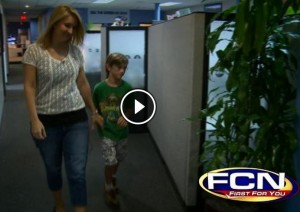
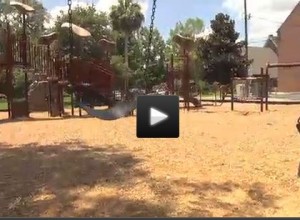
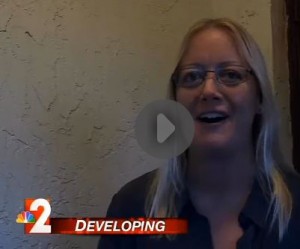

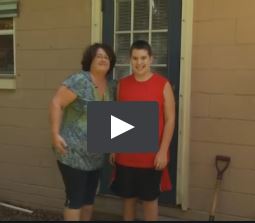



sounds to me this is like giving troublesome, expensive parents/student some money, and then washing your hands of them, shutting the door, pretending you’ve just done something generous and noble… and the desperate (cash-strapped) parents/students have been conned into being grateful for your ‘generosity’…
Calling kids with special needs “expensive” and “troublesome”?
You sound like a horrible person.
If you want to homeschool, great. But that’s your choice. The woman quotes in te story as not getting all the necessary therapies for her child, IMO, is doing her child a huge disservice. He would have all the therapies he needed if he was in school. And even if they get this grant, they still won’t have enough to cover all the therapies.
No, a public school will not provide appropriate therapies for special needs children. Note the qualifier “appropriate.” Special needs students are given an IEP (Individualized Education Plan) that details what such students are taught and what additional therapies will be provided. Fifteen minutes twice a week of speech therapy or physical therapy or occupational therapy is nowhere near enough to make a difference for some students; therefore, it is not appropriate. The McKay Scholarship has very specific requirements, such as having spent the prior school year in your district’s public school. My son is deaf, has cerebral palsy, shunted hydrocephalus, and epilepsy. We gave the local school an opportunity to educate him; the staff was inadequately trained, the aides were negligent; and the curriculum was so generic as to be useless. We home schooled for several years before finding a suitable private school. For the previously stated reason, he was not eligible for the McKay, so funding was always a problem. Now, the PLSA will allow our son to attend this excellent school and will even pay for therapies that Medicaid does not.
Therapy is not cheap, and since insurance companies—as opposed to doctors and therapists—have become the arbiters of what a child needs, many parents must leapfrog the therapies their children receive because said insurance companies, in their wisdom, decide that “this is enough.” Some families have too high an income to qualify for low-income scholarships, though their income is barely enough to survive on. In a perfect world, public schools would have all the money they need to properly educate every student, regardless of his or her specific needs. Curriculum customization costs money; training teachers costs money; transportation costs money; and politics is too frequently the deciding factor in whether a student succeeds.
Therapies aside, is a public school curriculum, In Your Opinion, appropriate for both typical and special needs students? Should not every student be allowed to reach his or her maximum potential? My son certainly has to work ten times as hard—and requires much more one-on-one attention—as a typical kid to make any progress. Would it be appropriate, then, for the typical students to be shortchanged by the teacher because she’s too busy helping my son? Well, there are special ed classes, right? Sure, but they are unfortunately all created equal and are therefore minimally effective in addressing the wide array of developmental, psychological, and physical disabilities their students present.
Do I know the woman quoted in the article? I do not, so I cannot say with complete authority whether she is doing her child a “huge disservice.” I certainly know parents who are lazy and neglectful; my wife works with their children every day in a public school. But I also know that most of us—parents of special needs children, that is—struggle every day doing everything in our power to help our kids succeed. After years of caring for children, something that often involves just keeping them alive, we have learned what they need by way of education, and we’ve learned this from the doctors and therapists who have stood with us during the journey. It takes a lot of work, and anything “public” by its very nature has no room for individualized attention.
Apologies for the somewhat scattered nature of this reply. When I’m feeling this emotional on a topic, it’s difficult to adhere to proper five-paragraph essay organizational structure.
When your child is in a contained classroom, the therapist works on the teacher’s goals to facilitate the student in the classroom. Anyone that has worked in the public school system knows that. Most parents that have any sense will seek out private services. A classroom setting is not the real world!
Hi Sahila, Hi Sara, thanks for reading the post and taking time out to comment. The PLSA is another option & another tool. It’s not a silver bullet. Many parents of students with special needs will find their needs met in public schools. Others will benefit from McKay scholarships. But for those who still can’t access what they know is best for their children, the PLSAs offers another route to potentially get them there. In the past few weeks we’ve talked to a lot of parents with students with significant special needs, and I found them to be among the most engaged and informed parents I’ve ever met. I trust they will be diligent and clear-eyed about weighing the PLSAs and other options, and that they will make the best decision for their kids.
Here is yet another article showing how unaccountable voucher schools are. It’s time to file a lawsuit against the entire concept. They’re a blatant violation of the FL constitution.
https://www.news-journalonline.com/article/20140719/NEWS/140719416?p=all&tc=pgall
It it obvious that many people do not understand the needs of disabled students, Many schools also do not understand how to educate the disabled student. Children with disabilities, really all children, deserve the best education possible. As it stands now, most public schools CAN NOT provide this. Some private schools are also lacking. The goal here is for families to have a choice. We have choices in other aspects of life but yet in education (which we consider to be the most important thing in life) people are actually saying that we should not have a choice. Who dare to stop a parent from seeking the best educational opportunities for their child.
Am definitely agree with Eddie. My daughter was retained in public school for lacking a psychological evaluation at public school. She come with a condition after the evaluation. I did not accept the retention. So I enrolled her in a private school. She is doing awesome!!!
Am more than satisfied and happy with the school and STEP UP FOR STUDENTS!!! Definitely public system does not properly use the tools they have and does not offer help DIRECTLY to students with certain problems and conditions.